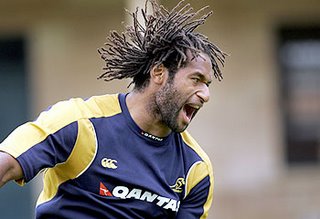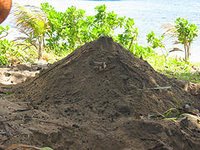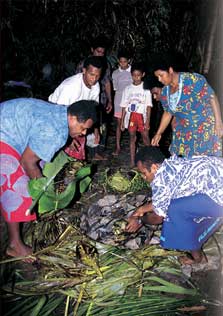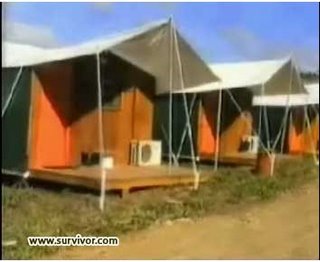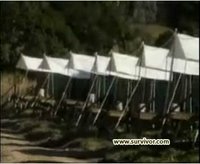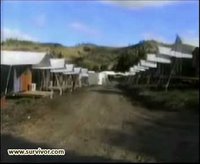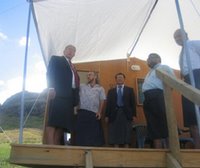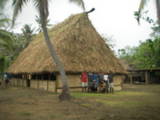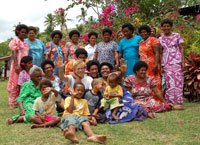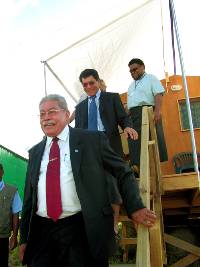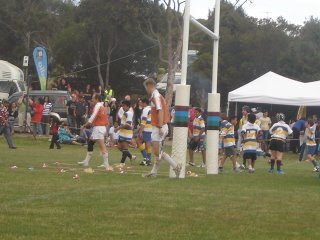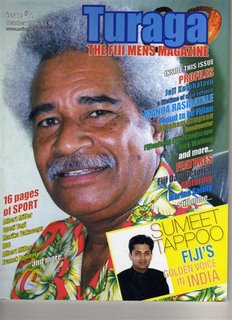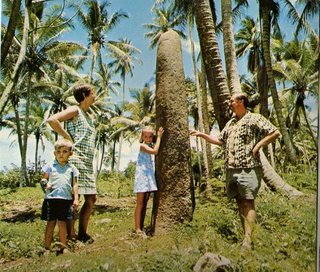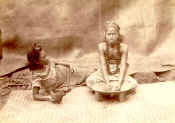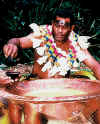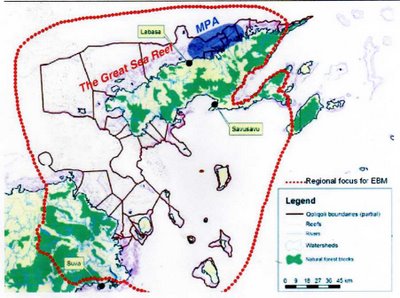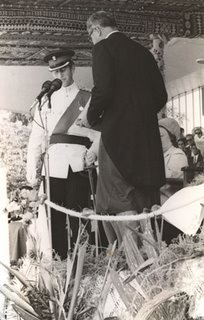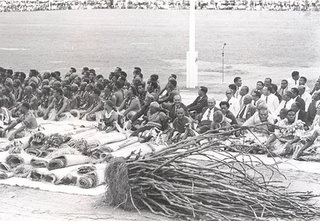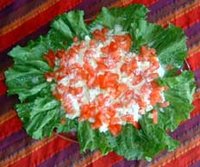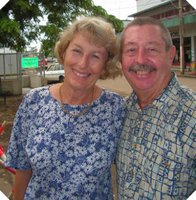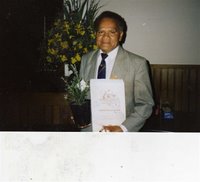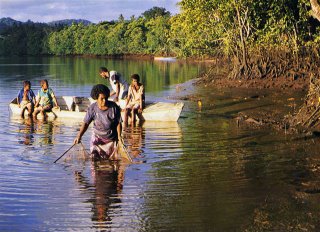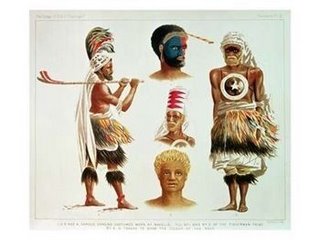The only time I every remember getting a smack from my parents was when I was four and I stood outside a bookshop and shouted 'I wanna book! I wanna book!' Well, there's a book now that I would love to have. It's the Fiji English Dictionary.
Here's a
discussion about it: from Radio Australia.
FIJI: Local idiom recognised by Fiji English dictionary
If you are in search of alcohol and you enter a "grog-shop" in Fiji, you may be disappointed. That's because in Fijian English, "grog" refers to kava, or yaqona, rather than alcohol. It's just one example of how the English spoken in Fiji has been influenced by the environment in which it's used. And now, the idiom will be recognised in the first-ever dictionary of Fijian English, which will be available in book-stores around the Pacific from August this year. It will be referred to as the Macquarie English Dictionary for the Fiji Islands and will include about 40 000 entries - many of them with links to Hindi and the Fijian language, but which are now used in English.
Presenter/Interviewer: Naziah Ali
Speakers: Dr Paul Garaghty, co-author, Macquarie English Dictionary for the Fiji Islands
GERAGHTY: The main difference is that like a lot of pidgin languages, like Melanesian pidgin, the type of English that's spoken in Fiji has a great deal of input from the local languages, particularly Fijian rather than Hindi, although Fijian and Hindi are both widely spoken in Fiji.
The main input to Fiji English has been Fijian, rather than Hindi, because it was Fijian speakers who first started to use English as a lingua franca in Fiji.
And then, of course, the other main difference is that a lot of vocabulary is different, a lot of the vocabulary that's used in Fiji is unique, some of it comes from Fijian, some of it comes from Hindi, and some of it has its origins in English, but has acquired different meanings.
ALI: So, why an English dictionary for the Fiji islands - does Fiji need one?
GERAGHTY: Well we think the time is right. We think that if you go back a few years, I don't know exactly how many years, but I suspect it was something like 20 or 30 years, people would have asked the same question about Australia. They would have said, you know, 'why do we need a separate dictionary for Australia Surely Australia is an English speaking country and we will continue to use the Oxford English dictionary as our guide'.
But then the people of Macquarie, and probably others who were around at the same time, came up with the idea that, no, Australian English is a different language from British language and is of course distinct also from American English, and they decided that Australian English also needs a dictionary of its own.
And that's where Macquarie came in and Macquarie has I believe been very successful in establishing its niche as the authority on Australian English.
So, I think the time is right also for Pacific English's to have their own dictionary of English, because they have so many features that are unique. The English press, for example, in Fiji is going from strength to strength, there are three English language newspapers, there aren't many publications other than newspapers, there're a few magazines and journals, but nevertheless these are the main means of written communication in Fiji. And of course, you have radio and the television, which is strongly influenced by English, there's far more English on Fiji television than there is any of the local languages, Fijian or Hindi.
So, we need a dictionary of English for Fiji just as much as Australia needs its own dictionary of Australian English.
ALI: How useful is it going to be? Who is going to use it?
GERAGHTY: It's a bit of a shot in the dark, so we really don't know, but our feeling at the moment is that probably it would be most useful to people in the media. There're the immediate people that we're thinking of, people who are journalists with the local newspapers and magazines and radio and television, these are probably the first people who will want to use it.
There will be some interest internationally among linguists, and there's a great deal of interest in various Englishes around the world and to date very, very little has been written about Fiji English, this would be a source of new material for Fiji English for linguists who are interested in all the new varieties of English that are springing up all over the world.
But also I think for teachers, for students, probably secondary students rather than primary students, because it not only gives examples of Fiji English, but it also gives examples of the differences between Fiji English and standard English, international English, which is what is required for exams.
ALI: How did you go about doing it?
GERAGHTY: Basically, I suppose, in two ways: just keeping our ears open for things that people say, which are typical of Fiji English and making notes of these things and also doing a lot of reading of local newspapers.
For example, myself I think it's certainly true of Dr Mugler, my co-author, and it used to be true of Jan Tent when he lived in Fiji, made a point of reading what the local newspapers every day. So I certainly read the Fiji Times every day and I make a note of certainly all the locally written stuff.
A lot of words which are everyday words in Fiji English, which come from Fijian and Hindi mostly, all pick up particular meanings which are peculiar.
Just to give a few examples, you'll often see the drink kava referred to in written English in Fiji as either yaqona, which is the Fijian name, or as grog, which is the local English name. Now in Australia and other parts of the English-speaking world grog means something else, it refers to an alcoholic beverage, strictly speaking it's watered down rum that used to be issued to the navy. But in Fiji - and a number of visitors have noted this - you'll often walk past a shop which has a notice up saying 'grog for sale'. And of course what they're selling there is not watered down rum or any alcoholic beverage but the local drink which is kava or yaqona.
So, the word yaqona and the word kava are in this dictionary with their definitions and also a lot of words from Hindi, especially foods, taracurry, which is the local word for curry. Clothing for example like sari and dhoti and Indian sweets, which are very popular among all people in Fiji like gulab jamun and so forth.
---------
And an excerpt from Fiji Times Saturday 21st Oct.
One of the editors of the Macquarie Dictionary who helped put together the Fijian and English definitions, Dr Paul Geraghty, said it was not easy compiling the dictionary.
"It involved a lot of work, especially research and we used the media to get some words, especially those that are commonly used every day like on the streets, in the nightclubs and other hang-out areas," Dr Geraghty said. He said the words in the dictionary included slang such as Uro, which was famous a year ago. "We have the definition of that word Uro and other Fijian slang that you hear on the streets."
Dr Geraghty said the dictionary would be of great help to tourists visiting Fiji as they would easily understand the definitions of informal English languages that the people of Fiji use every day on our streets.




